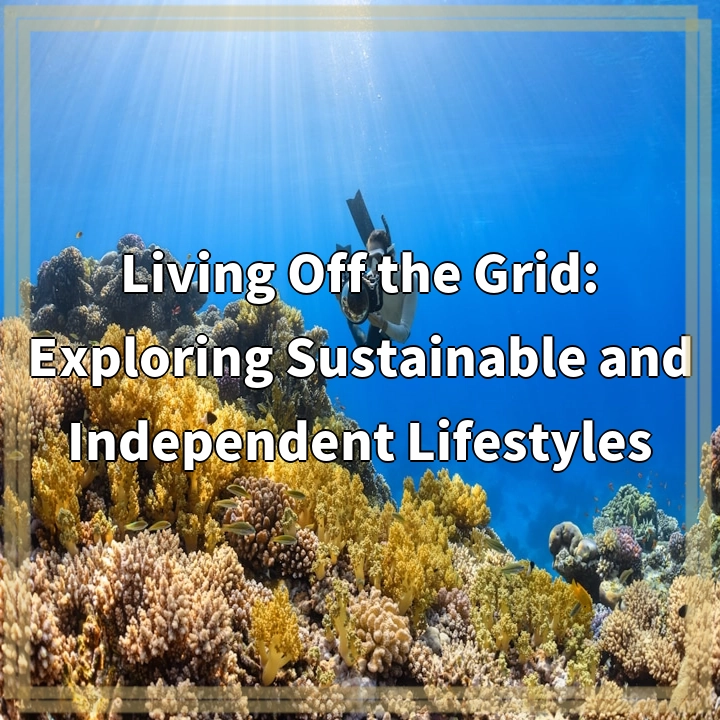Physical Address
304 North Cardinal St.
Dorchester Center, MA 02124
Physical Address
304 North Cardinal St.
Dorchester Center, MA 02124

Living off the grid refers to a lifestyle where individuals or communities choose to be self-sustaining and independent from traditional public utility services. This includes generating their own electricity, sourcing their own water supply, and managing their waste effectively. Off-grid living often involves utilizing renewable energy sources such as solar panels, wind turbines, and hydro power.
Many off-grid enthusiasts prioritize living in harmony with nature and reducing their carbon footprint. They strive for a sustainable lifestyle that minimizes resource consumption and promotes self-sufficiency. This lifestyle can be adopted in various settings, including rural areas, remote locations, and even urban environments through innovative eco-friendly technologies.
While living off the grid can offer numerous benefits, there are also several challenges and considerations that come with this lifestyle choice.
One of the primary challenges of living off the grid is ensuring a consistent and reliable energy supply. Renewable energy sources like solar or wind power can be weather-dependent and require sufficient storage capacity to meet energy demands during periods of low generation. It often necessitates careful planning and investment in adequate infrastructure.
Off-grid living involves finding alternative water sources and implementing efficient water management strategies. Depending on the location, individuals may need to rely on rainwater harvesting, wells, or natural springs. Proper filtration and purification systems are also crucial for ensuring access to clean and safe drinking water.
Off-grid communities need to establish effective waste management systems to minimize environmental impact. This includes composting organic waste, recycling materials, and responsibly disposing of non-recyclable waste. Proper sanitation facilities and septic systems are necessary to prevent contamination and maintain hygiene.
Living off the grid often means limited or intermittent access to modern forms of communication and the internet. Remote locations may have poor connectivity, making it challenging to stay connected with the rest of the world. Finding alternative methods for communication and accessing information becomes essential.
Transitioning to an off-grid lifestyle requires an upfront investment in renewable energy systems, water infrastructure, and sustainable technologies. While these investments can lead to long-term savings, the initial costs can be substantial and may deter some individuals.
By acknowledging and addressing these challenges, individuals and communities can work towards sustainable and independent off-grid living. With careful planning, innovative solutions, and a strong commitment to environmental stewardship, this lifestyle choice can contribute to a more sustainable future.
– Invest in high-quality renewable energy systems such as solar panels or wind turbines.
– Install sufficient energy storage capacity to ensure a consistent power supply.
– Optimize energy use by implementing energy-efficient appliances and lighting.
– Consider hybrid systems or backups like generators for periods of low renewable energy generation.
– Implement rainwater harvesting systems to collect and store water during rainy seasons.
– Utilize filtration and purification systems to ensure access to clean and safe drinking water.
– Maintain water-efficient practices, such as using low-flow fixtures and practicing water conservation.
– Explore alternative water sources like wells, natural springs, or water delivery services if necessary.
– Adopt composting methods to manage organic waste and create nutrient-rich soil.
– Practice recycling and proper waste sorting to minimize the amount of non-recyclable waste.
– Utilize recycling facilities and programs available in the local area.
– Implement responsible disposal methods for non-recyclable waste, considering eco-friendly options like waste-to-energy plants if available.
– Utilize satellite internet services or other alternative methods for internet and communication needs.
– Invest in communication devices like satellite phones or walkie-talkies for reliable communication.
– Establish community networks and connections with nearby off-grid communities for collaboration and support.
– Conduct a thorough cost-benefit analysis to understand the long-term savings and benefits of off-grid living.
– Research available government incentives, grants, or tax credits to offset initial investment costs.
– Explore financing options or crowdfunding platforms that support sustainable living initiatives.
– Develop self-sustaining income streams like small-scale farming, homesteading, or eco-tourism to generate revenue.
By implementing these solutions, individuals and communities can overcome the challenges associated with off-grid living and create more sustainable and independent lifestyles.
If you’re wondering where the article came from!
#